Curating the Canon
How I Selected my Immortal Books List
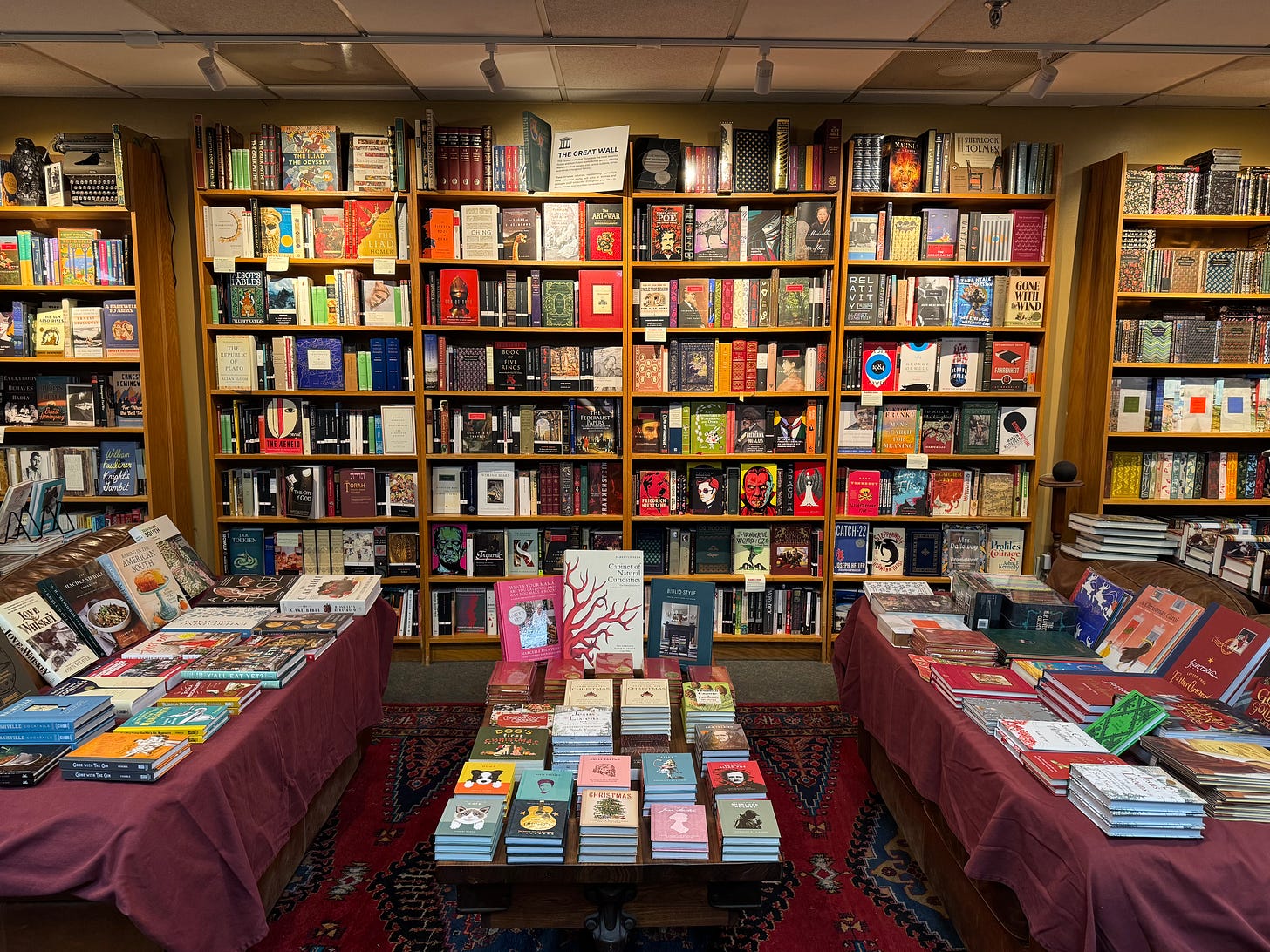
“How did you select the books on your Great Books reading list?” It’s a question I’m often asked after I tell people I’m spending the next 15 years reading through what I’m calling The Immortal Books. I don’t think the word “great” properly captures the importance of a book that has stood the test of time. These books are not great like my cup of coffee this morning. They are immortal: they do not die nor do they pass into obscurity.
I’d been collecting classics for 20+ years and they would sit on my shelves like Sirens beckoning me with their song. I came to two realizations around the year 2022:
Books come from books.
If I don’t make a plan to read the Immortal Books, they will remain unread.
I decided to make a list of books I wanted to read and began thinking of an appropriate timeframe in which to read them. In knowing that books come from books, I figured reading the books in chronological order would offer the best manner of encountering the flourishing of ideas from one author to another.
I first scoured Great Books lists online and started to generate my own list. I noticed the same books showing up over and over again. They were books I had heard about my entire life and some that I had even purchased over the years. These were the obvious choices, the books where there was little doubt of their influence over time.
Next, I began considering books outside of the Western Canon. I wanted to include at least one foundational text from each of the major world religions. I wished to include works from the East, from Africa, and Asia. And I wanted to make sure female authors throughout time and place were included.
For those books, I expanded my online search and also asked specific friends and professors (like Jessica Hooten Wilson & Karen Swallow Prior) for suggestions. I began adding everything I came across and that was referred to me into a master list. That list quickly grew to hundreds of authors and books.
I needed to set a limit.
Should I limit by the number of books or the number of authors? It quickly became apparent that I would need to limit by author. For example, Shakespeare has 38 plays. If I set a limit of 200 books, Shakespeare alone would consist of nearly 20% of all of the books. I instead decided to set the limit to 200 authors, knowing that there would be multiple books by some authors and just one book for others.
I also needed a publication date limit. I decided not to include anything written in the past 50 years. These works needed to stand the test of time. With some works on the list over 4,000 years old, something written in the past 50 years has hardly passed the hardest test of all, the test of time.
With these limits in place, I first organized the master list in chronological order. For ancient authors, I listed them in order of the year the author died as publication date was oftentimes hard to come by. For more recent works, I organized them by publication date. For works without a known author (Gilgamesh, The Rig Veda, Writings from Ancient Egypt), I used the best estimate of timeframe I could find online.
Once the list was in chronological order, I began the difficult process of narrowing down to just 200 authors. For this, I balanced comments from others, how ubiquitous a work on Great Books lists, and my own personal preference for what I most wished to read. While many of the books are set and will not change, I do view the list as a continual work in progress and am always seeking suggestions.
I also keep the list flexible in terms of adding other works. For example, my initial plan was to just read 2 tragedy plays by each of the Greek playwrights. However, I loved them so much that I decided to read all surviving plays by all of the tragedy writers (30+ in total). That obviously increased the amount of time I spent with Aeschylus, Sophocles, and Euripides, but it was well worth it. So, flexibility within the structure is key.
I’m currently in year 3 of reading through this list of Immortal Books. I’m on author 18 of 200. It has easily been the most enjoyable reading of my life. I re-read some books immediately (Homer, Gilgamesh, The Analects). If I’m having trouble understanding a book, I’ll pick up a guidebook or a new translation. Additional translations also include different introductions, which I’ve found to be invaluable.
I’ve joined online reading groups for deeper interaction with texts as well (the Iliad, the Odyssey, the Oresteia, Thucydides). For writings from Egypt, I spent a month looking at books about Egyptian Art and reading about the Pharaoh Akhenaten. For Confucius, I planned to spend three days reading through The Analects, but that quickly morphed into 30 days as I became curious and wanted to learn more.
I also have a reading plan once I’ve finished the Immortal Books list. I want to set aside years for individual authors or topics. For example, I’d like to take one year to read everything by C.S. Lewis. Another year to read everything by George Macdonald. Another year to learn everything I can about trees. Knowing this actually keeps me on task to attempt to finish the Immortal Books in my 15 year time frame goal.
I’m often greeted with a quizzical look when I say I know what I’m reading for the next 15 years. Most people don’t like the perceived inflexibility of such a rigid plan. However, I’ve found the opposite. These are books I truly desire to read. By setting this plan, I no longer have the anxiety of wondering if I’ll get to Moby Dick or St. Augustine or Jane Eyre before I die. I also divide my reading year to make space for newer books, books by authors doing book signings at Landmark Booksellers where I book all events, or suggestions from friends. In any given year, I’m reading the Immortal Books for 8 months and reading other books for 4 months. There’s a balance to the madness.
Whether it’s an Immortal Books list, all books by Jane Austen, or a deep dive into trees, make a list of the books you’d like to read. Set a time limit and organize them chronologically, randomly, or in some other delightful pattern. You do have a limited time on this earth and you will only get to a certain number of books. Make sure they are the ones you really wish to read and set about reading them.
Some of the Sources I Used to Create my Immortal Books List:
Tommy Collison Great Books – the idea for this Great Books project was largely inspired by Tommy – https://tommycollison.com/greatbooks
The University of the South Reading List
Invitation to the Classics – Os Guinness & Louise Cowan
Ryan Holiday Books to Base Your Life On
Jordan B. Peterson Great Books



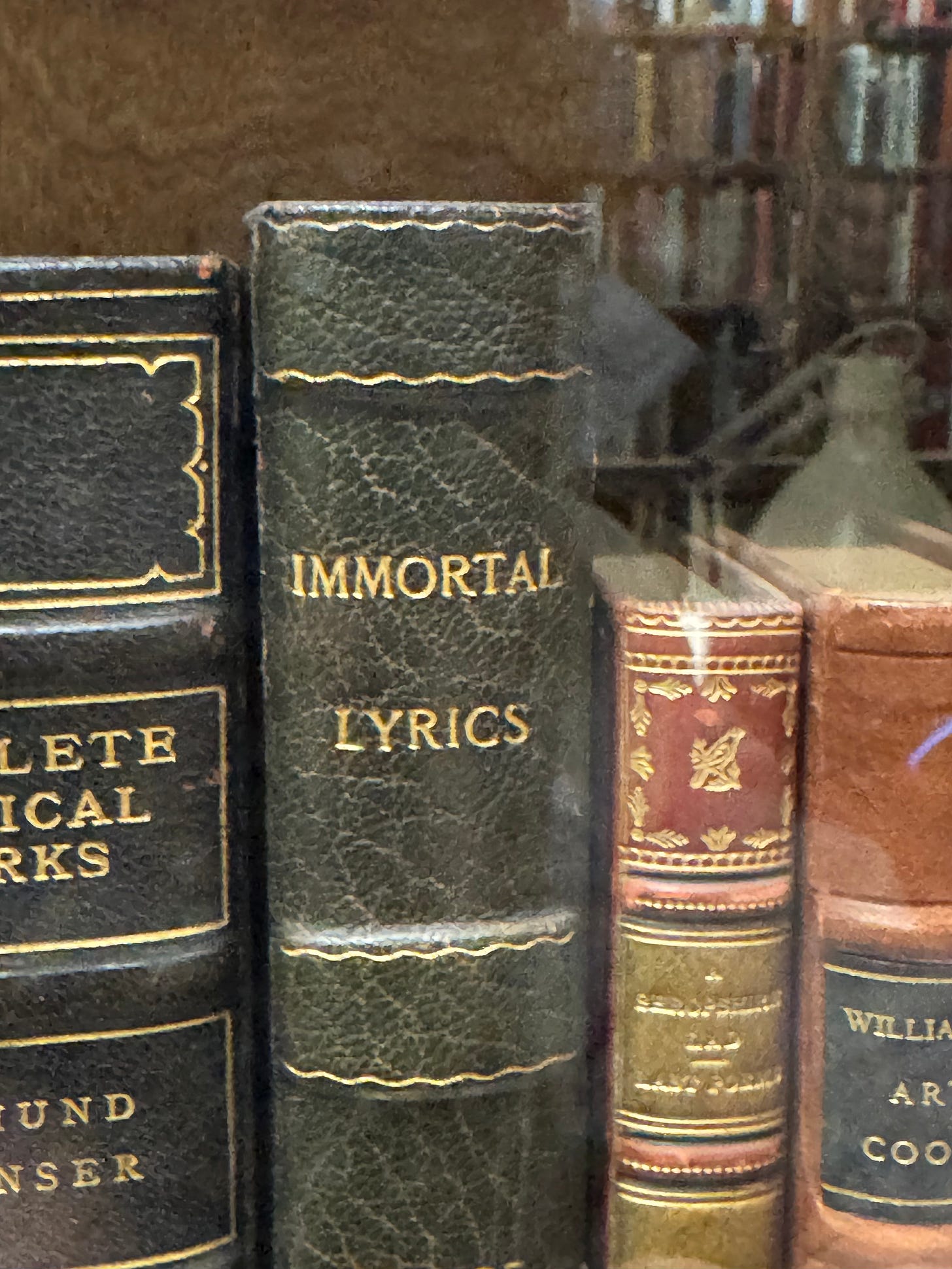
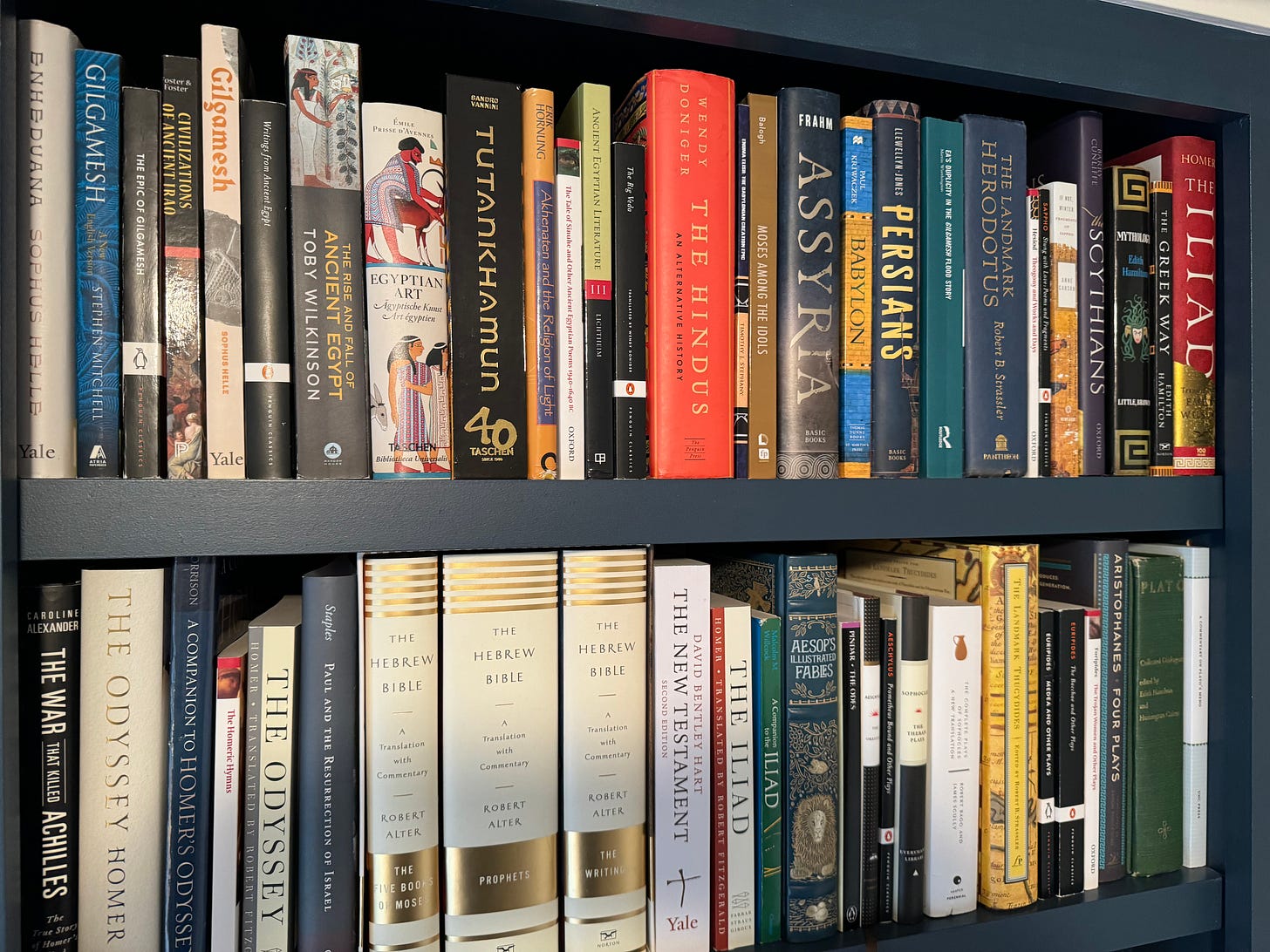
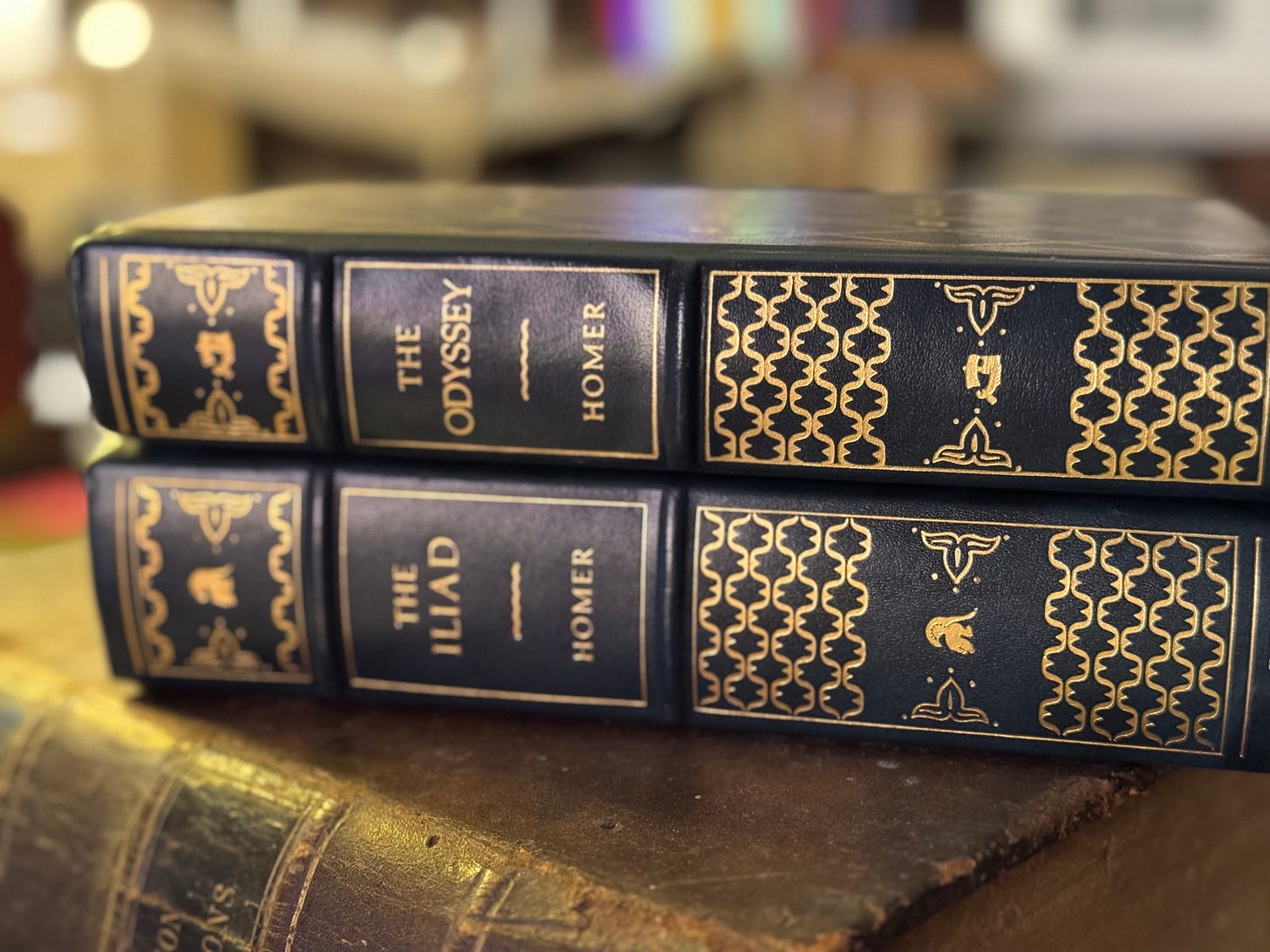
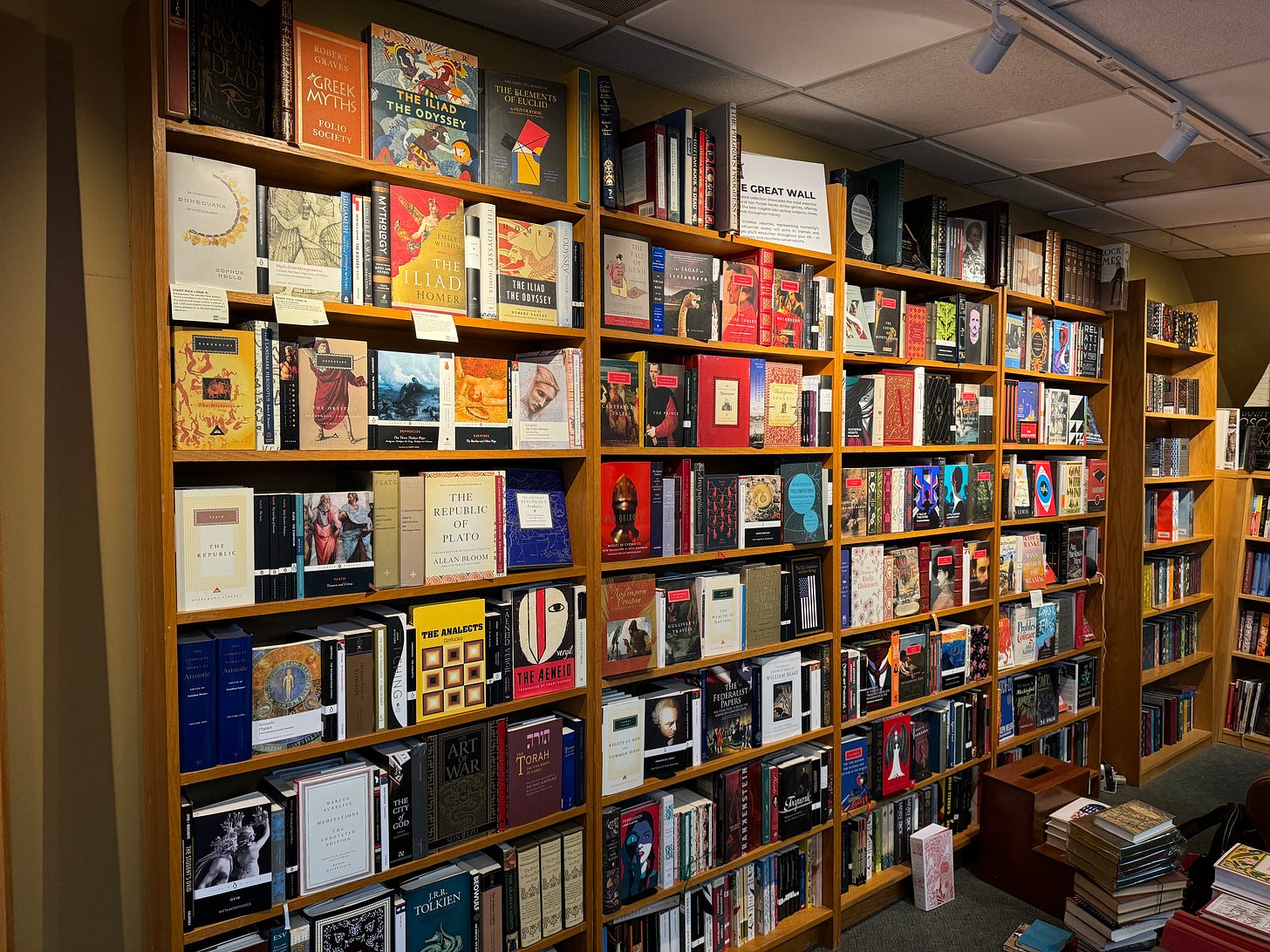
Hi Erik, your list of books is excellen
t, it is very prolific, and yet there are so few women on your list, not before 132…. what does this mean?
H hey Erik love the list quick question are you a fast reader or do you have a lot of extra time to do it? How do you get all of those books read in the timeline that you do? I myself I’m a fast reader and voracious and I’m using your list also but between work and a doctoral program it’s hard to read some of these things that are so classic so fast.